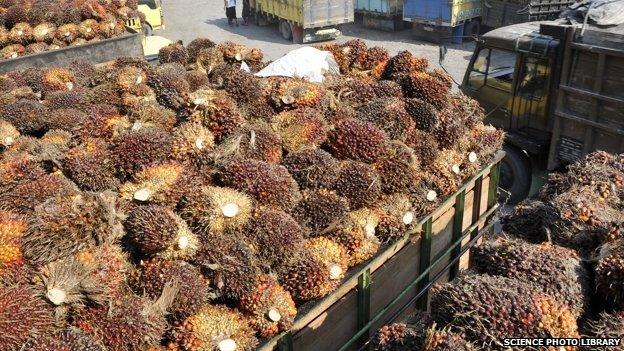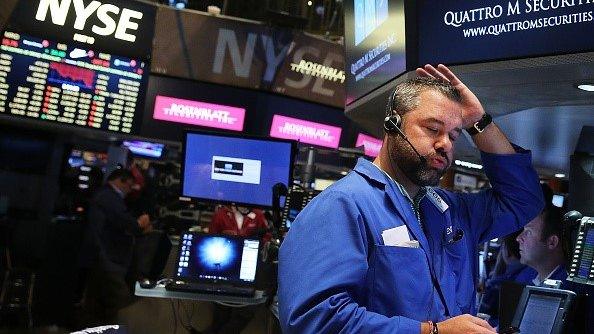China counts cost of its Black Monday
- Published
- comments

Beijing's official mouthpiece has called it China's "Black Monday".
The Shanghai Composite tumbled by 8.5%, its biggest fall since 2007. That plunge wiped out this year's gains as investors refused to buy into the Chinese government's repeated attempts to shore up confidence.
Its latest move over the weekend, to allow pension funds to invest in stocks for the first time, was dismissed by panicky traders. For many, it was just too little, too late.
"The writing has been on the wall for a couple of weeks now," said Stephen Innes, a senior trader with Oanda.
"We've seen a lot of pressure on the Chinese markets and we've seen a lot of government intervention propping that up. From experience, that government intervention can only last so long until investor confidence starts to wane."
And this anxiety was felt across the region, with share markets from Sydney to Seoul sinking into the red.
It's being called the contagion effect, namely the concern that a China-led global slowdown could hurt economies in Asia badly - particularly commodity countries such as Indonesia and Malaysia, that have seen their economies boom because of the demand from China over the last decade.

Palm oil is a major commodity in Indonesia and Malaysia
But do Asian economies just need to bite the bullet and get used to a slower-growing China?
As economies develop, they typically tend to slow down, and that's the transition that China is going through.
But the government is now trying to put the brakes on a slowdown that may be going too fast for its liking.
Everyone wants to know what the Chinese government is going to do next to shore up shares and confidence in the economy.
The smart money is on the central bank reducing interest rates and injecting a semblance of consumer confidence into the markets.
That is what many had hoped would happen over the weekend.
But at each point in what appears to be an ever-deepening Chinese slowdown, the government has seemed slow to react.
- Published24 August 2015
